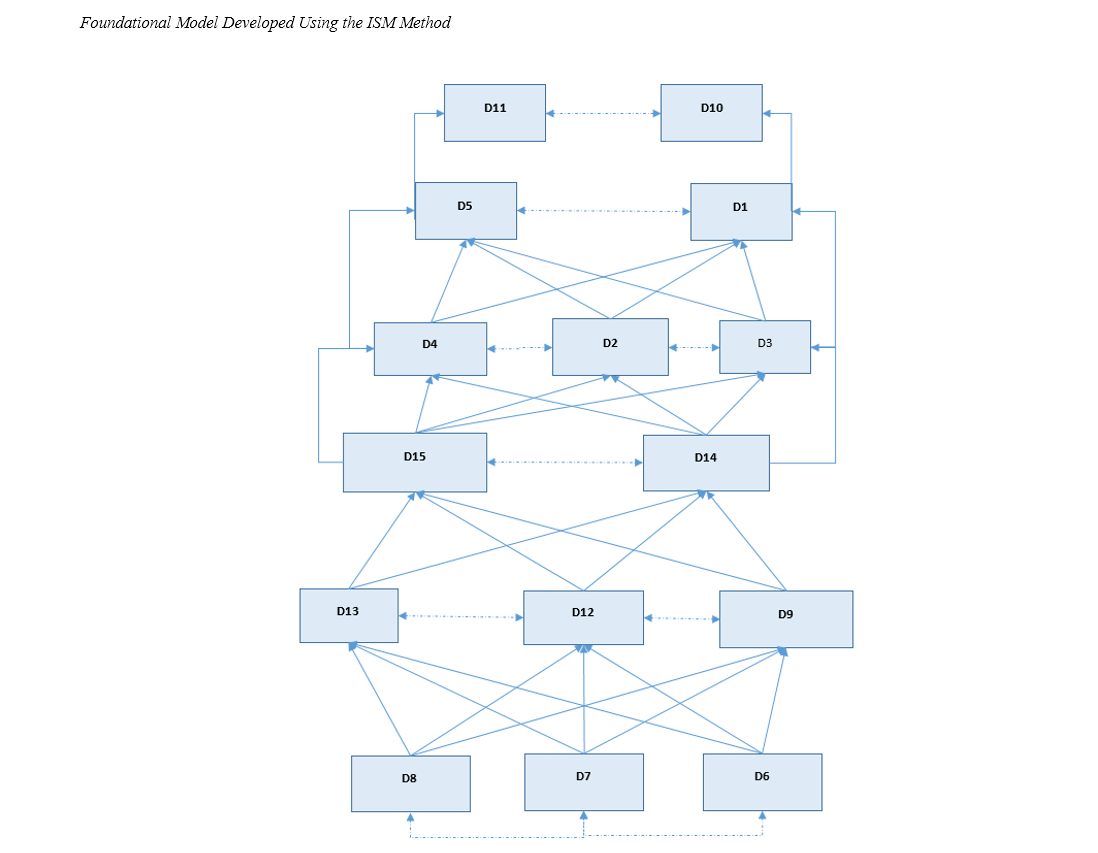Evaluation of the Role of Artificial Intelligence in Enhancing Consumption in Industrial Units
Keywords:
energy consumption, energy efficiency, artificial intelligence, industrial electricityAbstract
With the rapid advancement of modern technologies, particularly artificial intelligence (AI), significant transformations have occurred in the domains of marketing and customer engagement. This study examines the impact of artificial intelligence on enhancing customer experience in social media marketing, with a specific focus on the domestic automotive market in Iran. A mixed-methods research approach was employed. In the qualitative phase, Interpretive Structural Modeling (ISM) was used to identify the relationships among influential variables and to develop the initial conceptual model. In the quantitative phase, the model was validated using Structural Equation Modeling (SEM), and data were collected through a questionnaire developed based on grounded theory results. Additionally, the SWARA method was applied to determine the weight and significance of variables. The results indicated that artificial intelligence enhances customer experience by improving personalization, increasing engagement, and enabling rapid responsiveness in social media, thereby contributing to customer loyalty. The findings offer opportunities for automotive manufacturers and marketers to effectively leverage intelligent technologies. This research addresses existing gaps related to the cultural and market conditions of Iran and provides a practical framework for improving digital marketing strategies.
References
Alhammadi, B. K. K., Ahmad, S. Z., & Davidson, R. (2024). Examining the interplay between managerial ties, dynamic capabilities and innovation climate in driving balanced and combined ambidextrous innovation. Journal of Asia Business Studies. https://doi.org/10.1108/JABS-10-2023-0407
Alizadeh, H., Khorramabadi, M., Saberian, H., & Keramati, M. (2024). Qualitative Study to Propose Digital Marketing based on Customer experience: Considering Grounded theory (GT). Business, Marketing, and Finance Open, 1(6), 86-98. https://doi.org/10.61838/bmfopen.1.6.8
Alizadeh, H., & Nazapour Kashani, H. (2023). An Empirical Study of Consumer-Brand Relationships in the Hospitality Industry. Iranian Journal of Management Studies, 16(4), 857-872. https://doi.org/10.22059/IJMS.2022.341453.675074
Campillo, J., Dahlquist, E., Wallin, F., & Vassileva, I. (2016). Is real-time electric- ity pricing suitable for residential users without demand-side manage- ment? Energy, 109, 310-325. https://doi.org/10.1016/j.energy.2016.04.105
Javaid, N., Hafeez, G., Iqbal, S., Alrajeh, N., Alabed, M. S., & Guizani, M. (2018). Energy efficient integration of renewable energy sources in the smart grid for demand side management. IEEE Access, 6, 77077-77096. https://doi.org/10.1109/ACCESS.2018.2866461
Lu, R., & Hong, S. H. (2019). Incentive-based demand response for smart grid with reinforcement learning and deep neural network. Applied Energy, 236, 937-949. https://doi.org/10.1016/j.apenergy.2018.12.061
Mathew, A., Roy, A., & Mathew, J. (2020). Intelligent residential energy manage- ment system using deep reinforcement learning. IEEE Systems Journal, 14(4), 5362-5372. https://doi.org/10.1109/JSYST.2020.2996547
Ming, Y., & Cao, J. (2018). Electrical load prediction in energy internet via linear correlation coefficient approach.
Mischos, S., Dalagdi, E., & Vrakas, D. (2023). Intelligent energy management systems: a review. Artif Intell Rev, 56, 11635-11674. https://doi.org/10.1007/s10462-023-10441-3
Patel, M., Dabhi, D., Patel, R., & Patel, J. (2019). Long term electrical load forecasting considering temperature effect using multi-layer perceptron neural network and k-nearest neighbor algorithms. International Journal of Research in Electronics and Computer Engineering. https://doi.org/10.13140/RG.2.2.29592.65288
Rezaei, A., & Moradi, B. (2021). Optimization of Electrical Energy Consumption Based on Residents’ Behavioral Patterns in Smart Homes Using Data Mining Algorithms with the Use of Smart Grid Systems and Renewable Energy Sources. Computational Intelligence in Electrical Engineering, 12(2), 1. https://www.researchgate.net/publication/323832362_Optimization_Electrical_Energy_Consumption_by_using_Smart_Grid
Tang, W., Wang, H., Lee, X. L., & Yang, H. T. (2021). Machine learning approach to uncovering residential energy consumption patterns based on socioe- conomic and smart meter data. Energy. https://doi.org/10.1016/j.energy.2021.122500
Wang, X., Yao, Z., & Papaefthymiou, M. (2023). A real-time electrical load fore- casting and unsupervised anomaly detection framework. Applied Energy, 330, 120279. https://doi.org/10.1016/j.apenergy.2022.120279
Wu, Y., Wu, Y., Guerrero, J. M., & Vasquez, J. C. (2022). Decentralized trans- active energy community in edge grid with positive buildings and interactive electric vehicles. International Journal of Electrical Power & Energy Systems, 135, 107510. https://doi.org/10.1016/j.ijepes.2021.107510
Zhao, D., Wang, H., Huang, J., & Lin, X. (2021). Time-of-use pricing for energy storage investment. IEEE Transactions on Smart Grid. https://doi.org/10.1109/TSG.2021.3136650
Zhou, S., Hu, Z., Gu, W., Jiang, M., & Zhang, X. P. (2019). Artificial intelligence based smart energy community management: A reinforcement learn- ing approach. CSEE Journal of Power and Energy Systems, 5(1), 1-10. https://doi.org/10.17775/CSEEJPES.2018.00840

Downloads
Published
Submitted
Revised
Accepted
Issue
Section
License
Copyright (c) 2024 Fatemeh Kharaghani, Ahmad Reza Kasraee, Hasan Mehrmanesh (Author)

This work is licensed under a Creative Commons Attribution-NonCommercial 4.0 International License.









